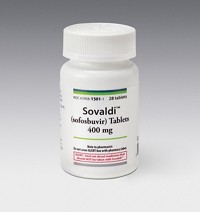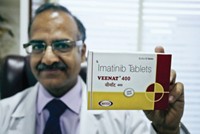Advertisement
Grab your lab coat. Let's get started
Welcome!
Welcome!
Create an account below to get 6 C&EN articles per month, receive newsletters and more - all free.
It seems this is your first time logging in online. Please enter the following information to continue.
As an ACS member you automatically get access to this site. All we need is few more details to create your reading experience.
Not you? Sign in with a different account.
Not you? Sign in with a different account.
ERROR 1
ERROR 1
ERROR 2
ERROR 2
ERROR 2
ERROR 2
ERROR 2
Password and Confirm password must match.
If you have an ACS member number, please enter it here so we can link this account to your membership. (optional)
ERROR 2
ACS values your privacy. By submitting your information, you are gaining access to C&EN and subscribing to our weekly newsletter. We use the information you provide to make your reading experience better, and we will never sell your data to third party members.
Pharmaceuticals
Brazil Breaks Patent On A Merck Drug
Despite drug maker's patent on AIDS drug, Brazil plans to import cheaper generic
by Glenn Hess
May 8, 2007
Merck & Co. says it is "profoundly disappointed" by Brazil's decision to break the patent on a key AIDS drug made by the U.S. pharmaceutical giant and buy a less expensive generic version of the medicine from India.
On May 4, Brazilian President Luiz In??cio Lula da Silva signed a decree authorizing his country's Ministry of Health to issue a "compulsory license" for efavirenz, a move that allows a country to manufacture or import generic copies of patented drugs while paying the patent holder only a small royalty.
Lula acted shortly after the Brazilian government rejected Merck's offer to reduce its price for efavirenz, sold as Stocrin, from $1.59 per pill to $1.10. Brazil wanted to purchase the drug at the same 65 cents per pill that Merck charges Thailand.
Lula said rules established under a World Trade Organization agreement signed in 2001 allow developing countries to issue compulsory licenses to combat public health emergencies. "The compulsory licensing of efavirenz is a legitimate and necessary measure to guarantee that all patients have access to the drug," he said.
Brazil has been pushing for lower drug prices to limit the cost of a government-run program that provides free medicines for people infected with the AIDSHIV virus. Efavirenz is used by 75,000 of the 180,000 Brazilians who receive AIDS drugs through the program, according to the Ministry of Health.
Merck is urging Brazil to reconsider its decision and is calling for further negotiations. But the company also defends its pricing practices, asserting that Brazil has a greater ability to pay for AIDS medicines than other countries that are poorer or harder hit by the disease.
"We believe it is essential to price our medicines according to a country's level of development and HIV burden," the company says. "R&D-based pharmaceutical companies simply cannot sustain a situation in which the developed countries alone are expected to bear the cost for essential drugs in both least developed countries and emerging markets."
The Brazil's breaking of the U.S. drug maker's patent could damage relations between Brazil and with the U.S., which has criticized Brazil in the past for not doing enough to protect intellectual property. Thailand overrode patents on several AIDS drugs earlier this year, including those made by Abbott Laboratories and Merck. Thailand's action prompted, prompting the Office of the U.S. Trade Representative on April 30 to place Thailand on its "priority watch list" for copyright violators.





Join the conversation
Contact the reporter
Submit a Letter to the Editor for publication
Engage with us on Twitter